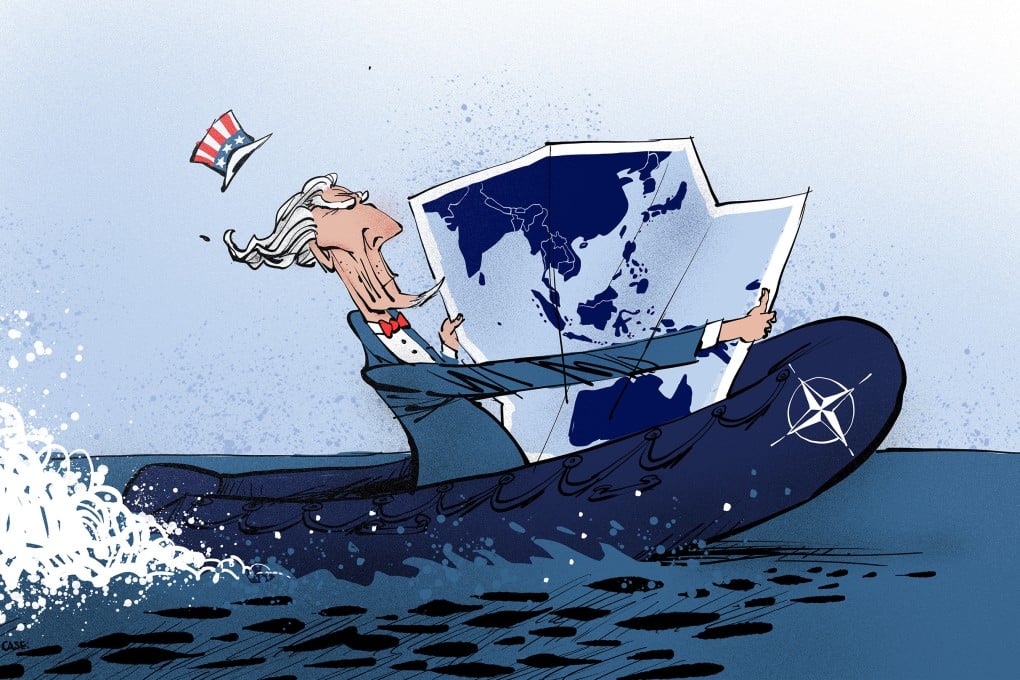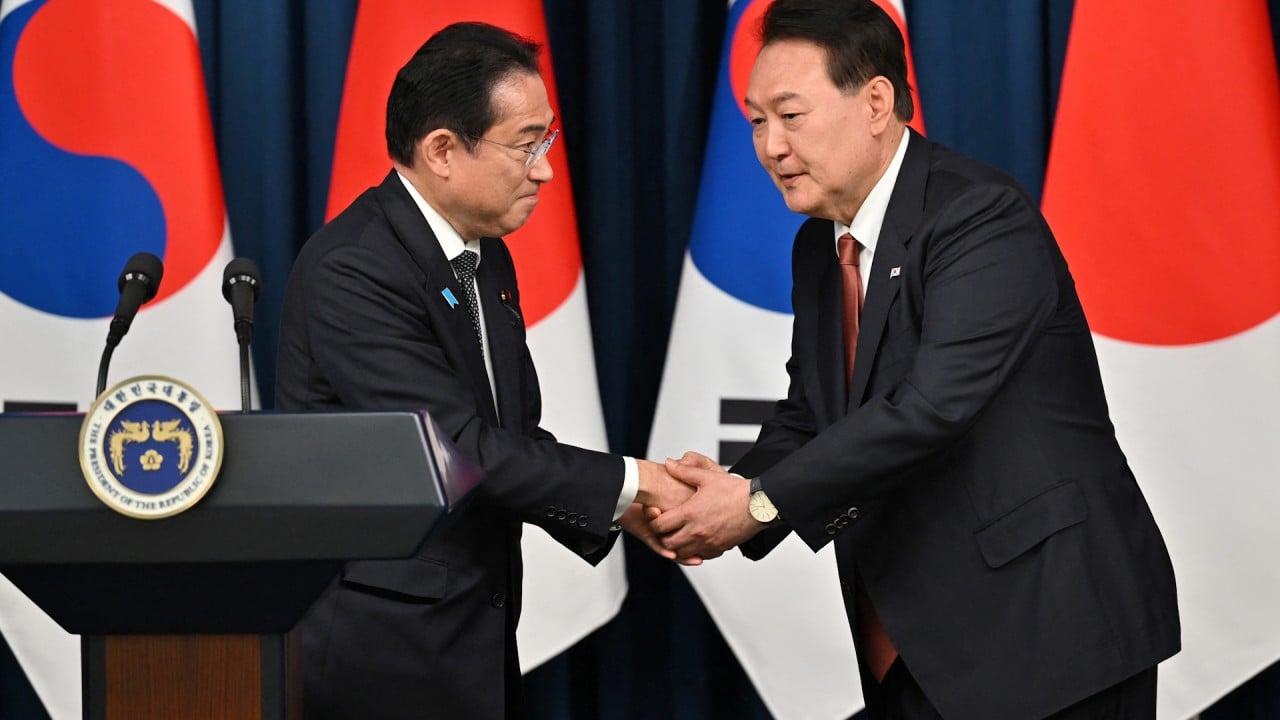Advertisement
Opinion | Why a US-led, China-focused Asian Nato is no longer so far-fetched
- An Asian equivalent to the transatlantic security alliance was once thought improbable, but changes to the geopolitical landscape have revived the idea
- If China wants to stop an Asian Nato from forming, it must address neighbouring countries’ threat perceptions and restart talks with the US
Reading Time:4 minutes
Why you can trust SCMP
8

This year is likely to be remembered as a turning point in history because it could signify the emergence of an Asian Nato – a multilateral security alliance in the Asia-Pacific led by the United States and consisting of its traditional bilateral allies in the region such as Australia, Japan, South Korea and the Philippines. This grouping will target China, the elephant in the room.
The idea of an Asian equivalent to the transatlantic security alliance was previously considered a far-fetched notion for two reasons. First, the US-led “hub-and-spokes” system, consisting of a series of US bilateral alliances, had been successful in maintaining regional security in the Asia-Pacific. In other words, an Asian Nato was not considered necessary.
Second, while the role of the US as the “hub” was not questioned, the relationships between the “spokes” have been strained for decades. For instance, historical issues have plagued the ties between South Korea and Japan, and Japan had a bitter experience with Australia during World War II.
The geopolitical landscape has experienced significant shifts recently. Last October, Japan and Australia strengthened their security partnership by signing a new security agreement. In March, South Korean President Yoon Suk-yeol and Japanese Prime Minister Fumio Kishida met in Tokyo to put an end to the two nations’ trade disputes and start the process of rapprochement.
The most consequential development, however, has been the intensification of US-China strategic competition since the spy balloon incident in February. President Xi Jinping has accused the US of trying to contain, encircle and suppress China. Furthermore, the meeting between Taiwan’s president, Tsai Ing-wen, and US House Speaker Kevin McCarthy in Los Angeles has further strained the already-contentious bilateral relationship. As a result, China has suspended high-level meetings with the US.
On the other hand, the US has arranged a series of leadership summits to reinforce its bilateral alliances this year. In January, US President Joe Biden welcomed Kishida to the White House, reaffirming America’s commitment to Japan’s defence. In March, Biden met Australian Prime Minister Anthony Albanese in San Diego to discuss the Aukus defence agreement.
Advertisement

